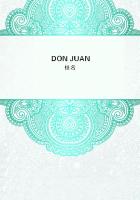CUTTING OUT
It was somewhere near noon by the time we had bunched and held the herd of some four or five thousand head in the smooth, wide flat, free from bushes and dog holes. Each sat at ease on his horse facing the cattle, watching lazily the clouds of dust and the shifting beasts, but ready at any instant to turn back the restless or independent individuals that might break for liberty.
Out of the haze came Homer, the round-up captain, on an easy lope. As he passed successively the sentries he delivered to each a low command, but without slacking pace. Some of those spoken to wheeled their horses and rode away. The others settled themselves in their saddles and began to roll cigarettes.
"Change horses; get something to eat," said he to me; so I swung after the file traveling at a canter over the low swells beyond the plain.
1
Then he flipped a loop in his rope and disappeared in the eddying herd. The discarded horse, with many grunts, indulged in a satisfying roll, shook himself vigorously, and walked slowly away. His labour was over for the day, and he knew it, and took not the slightest trouble to get out of the way of the men with the swinging ropes.
Not so the fresh horses, however. They had no intention of being caught, if they could help it, but dodged and twisted, hid and doubled behind the moving screen of their friends. The latter, seeming as usual to know they were not wanted, made no effort to avoid the men, which probably accounted in great measure for the fact that the herd as a body remained compact, in spite of the cowboys threading it, and in spite of the lack of an enclosure.
Our horses caught, we saddled as hastily as possible; and then at the top speed of our fresh and eager ponies we swept down on the chuck wagon. There we fell off our saddles and descended on the meat and bread like ravenous locusts on a cornfield. The ponies stood where we left them, "tied to the ground", the cattle-country fashion.
As soon as a man had stoked up for the afternoon he rode away.
Some finished before others, so across the plain formed an endless procession of men returning to the herd, and of those whom they replaced coming for their turn at the grub.
We found the herd quiet. Some were even lying down, chewing their cuds as peacefully as any barnyard cows. Most, however, stood ruminative, or walked slowly to and fro in the confines allotted by the horsemen, so that the herd looked from a distance like a brown carpet whose pattern was constantly changing--a dusty brown carpet in the process of being beaten. I relieved one of the watchers, and settled myself for a wait.
At this close inspection the different sorts of cattle showed more distinctly their characteristics. The cows and calves generally rested peacefully enough, the calf often lying down while the mother stood guard over it. Steers, however, were more restless. They walked ceaselessly, threading their way in and out among the standing cattle, pausing in brutish amazement at the edge of the herd, and turning back immediately to endless journeyings. The bulls, excited by so much company forced on their accustomed solitary habit, roared defiance at each other until the air fairly trembled. Occasionally two would clash foreheads. Then the powerful animals would push and wrestle, trying for a chance to gore. The decision of supremacy was a question of but a few minutes, and a bloody topknot the worst damage. The defeated one side-stepped hastily and clumsily out of reach, and then walked away.
Most of the time all we had to do was to sit our horses and watch these things, to enjoy the warm bath of the Arizona sun, and to converse with our next neighbours. Once in a while some enterprising cow, observing the opening between the men, would start to walk out. Others would fall in behind her until the movement would become general. Then one of us would swing his leg off the pommel and jog his pony over to head them off. They would return peacefully enough.
But one black muley cow, with a calf as black and muley as herself, was more persistent. Time after time, with infinite patience, she tried it again the moment my back was turned. Itried driving her far into the herd. No use; she always returned. Quirtings and stones had no effect on her mild and steady persistence.
"She's a San Simon cow," drawled my neighbour. "Everybody knows her. She's at every round-up, just naturally raisin' hell."When the last man had returned from chuck, Homer made the dispositions for the cut. There were present probably thirty men from the home ranches round about, and twenty representing owners at a distance, here to pick up the strays inevitable to the season's drift. The round-up captain appointed two men to hold the cow-and-calf cut, and two more to hold the steer cut.
Several of us rode into the herd, while the remainder retained their positions as sentinels to hold the main body of cattle in shape.
Little G and I rode slowly among the cattle looking everywhere.
The animals moved sluggishly aside to give us passage, and closed in as sluggishly behind us, so that we were always closely hemmed in wherever we went. Over the shifting sleek backs, through the eddying clouds of dust, I could make out the figures of my companions moving slowly, apparently aimlessly, here and there.
Our task for the moment was to search out the unbranded J Hcalves. Since in ranks so closely crowded it would be physically impossible actually to see an animal's branded flank, we depended entirely on the ear-marks.
Did you ever notice how any animal, tame or wild, always points his ears inquiringly in the direction of whatever interests or alarms him? Those ears are for the moment his most prominent feature. So when a brand is quite indistinguishable because, as now, of press of numbers, or, as in winter, from extreme length of hair, the cropped ears tell plainly the tale of ownership. As every animal is so marked when branded, it follows that an uncut pair of ears means that its owner has never felt the iron.














